Today a question from brand-new Twitter pal @RosieScribble caught my eye: Quick question. Anyone read a Young Adult book and if so which one? Interested in the number of YA books actually read by adults. Thanks.
I write (and read) YA novels so this topic interests me a lot. Gentle reader, believe it or not, I was once a teenager. That‘s me on the left there, at the tender age of eighteen, a terrifying thirty-one years ago. I am now almost old enough to be my own Granny. And yet, I love to write and read books with much younger protagonists. Why?
I know I‘m not the only one. A report in Publisher‘s Weekly in 2012 revealed that 55% of YA books are purchased by adults, and that 78% of the time these adults are buying the books for themselves, not for a teen relative. I‘ve never had such accurate statistics on the readers of my own novels, but I do receive at least as many comments, emails and social media messages from adults as I do from teens. The last of these was from the mother of an adult friend of mine (ie over 60) who had borrowed her copy of Silent Saturday and "has not been able to stop reading it."
So what is going on here? Are we all a bunch of wistful kidults? Are adult books "too hard" for some readers? Are YA books easier and more relaxing to read? (Considering the subject matter of some of them, I‘d say no to that last one, at least as a generalisation.)
Personally, when I am writing my novels (as opposed to my adult ghost stories) I don‘t consciously try to change my style because I am writing "YA". When I was still that fresh-faced teen pictured above, I was cheerfully reading Edwardian adventure novels and English classics. I didn‘t need to have the vocabulary narrowed or the content dumbed down just because I had only just reached voting age. If I feel like putting a word like "palimpsest" into one of my novels (The Glass Demon, actually) I don‘t hold back. Unusual words are what Google is for, anyway.
So I don‘t think the style of my books says ADULTS KEEP OUT. What about the age of the protagonists? Pia Kolvenbach, the heroine of my first novel, The Vanishing of Katharina Linden, was only ten years old, although the story is related from the viewpoint of someone a decade older. Lin Fox in The Glass Demon is seventeen. Perhaps the oldest of my heroines will eventually be Veerle De Keyser from Silent Saturday, who is seventeen for most of that book but will be nineteen by the end of Urban Legends, the third book in the trilogy.
As a writer, I am drawn to younger protagonists. I like the fact that a younger heroine may be open to ideas that an older person might dismiss. Pia, for example, is prepared to entertain the idea that the series of disappearances in her home town of Bad Münstereifel has some kind of supernatural explanation, and her investigations with her friend Stefan proceed on this basis. An adult might allow such an idea to pass briefly across their mind, but they‘d probably think twice about sharing it with anyone else, let alone breaking into someone‘s house and searching the cellar because of it.
And then there is Veerle in Silent Saturday, who spends her spare time doing urban exploration - breaking into derelict buildings and opulent villas whose owners are away. Of course, there is nothing to stop an adult having a go at this. I‘ve done a wee bit myself (the derelict ones, not the villas). But first I had to pick the kids up from school, put the washing in, think about what we were going to have for dinner...yes, there‘s a reason Veerle does more of that stuff than I do.
I think there‘s more to loving YA than just the practical aspects though. All those of us who are now adults were once teenagers; many of us still carry that hopeful younger person within us. (I suspect my Inner Young Person is even younger than that, actually, since I still like playing with Lego and reading The Mousehole Cat). I remember when I was approaching my eighteenth birthday I felt slightly sad about it because seventeen was the magical age; it was the age of the princesses in all the fairy tales - the age when dragons might be fought, quests set out upon, and handsome suitors eyed sneakily from the tower window. Get past that, and you were stuck with the rather mundane task of living happily ever after.
Fairy tales are considered classics. They are retold by the old to the very young. They are analysed by psychologists. They are remade as glossy Hollywood films. They don‘t automatically become worthless or uninteresting when the reader has reached an age at which they couldn‘t climb onto their snow white charger without help and they‘d think twice about whacking a dragon with a broadsword in case they put their back out. I think the same is true of YA. That‘s why I‘m going to keep on reading it and keep on writing it.
Older people: read more YA to smile more...



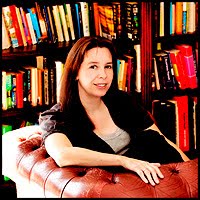
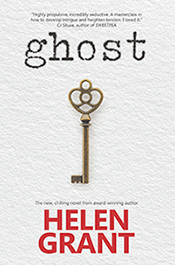
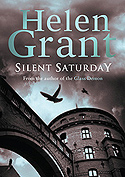
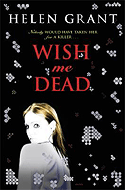
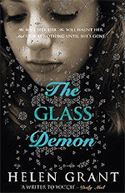
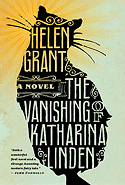
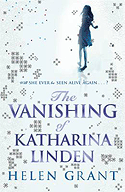
Super! My inner teen adores your books and I get to live a more exciting life through the various YA stories. I thought I'd be writing YA myself but so far it's all younger stuff. Guess my inner kid needs more stories too.
ReplyDeleteExcellent! Long may it continue. :-)
ReplyDeleteC.S. Lewis has a couple of great quotes about kid lit: “No book is really worth reading at the age of ten which is not equally – and often far more – worth reading at the age of fifty and beyond.” (I often paraphrase this using whatever ages are apt.) My sister and I both read all levels of literature. Some of the world's best writers write mainly for children or young adults: i.e., Diana Wynne Jones (RIP), Frank Cottrell Boyce, Ellen Potter, Frances Hodgson Burnett, Richard Peck, Robert Westall. And lots of authors who appear regularly atop the NYT bestseller lists (Dan Brown, James Patterson, Nicholas Sparks, Danielle Steel, Nora Roberts) are pretty gawdawful writers. Age really shouldn't have any influence on what you choose to read - only quality.
ReplyDeleteBTW, I'm burning through Silent Saturday. I just remembered it's the first in a trilogy (sound of teeth gnashing). Curse you, Helen! :-)
“A children's story that can only be enjoyed by children is not a good children's story in the slightest.”
ReplyDelete-- C.S. Lewis
Ha! All curses of that particular sort gratefully received...!
ReplyDeleteI completely agree about the quality of much writing for young people (superb) compared to some of the worst stuff for adults. Also, age divides in literature are justly fluid. "YA" wasn't a term bandied about 100 years ago, yet Conan Doyle's work, written for adults, sometimes appears in collections of classics for children.
That quote "my sister and I read all levels of literature" sounds amazingly smug and patronizing in retrospect! But we both get tired of hearing: "Are you reading a CHILDREN'S book?" like it's a bad thing.
ReplyDeleteEven worse when it comes from someone who's clutching a copy of The Da Vinci Code.
I don't think it sounds smug or patronising! :-)
ReplyDeleteAnd, of course, some 'adult' novels cannily retain the structure of fairytales. Reading Ian Fleming's DR. NO the other year, it struck me that 007 is given his task, travels to the far distant land, enters the villain's lair, travels through a maze which holds perils round every corner, slays the monster (first a giant squid, and then the devilish Dr. No) and gets the girl. He really is playing the Knight in Shining Armour. I'm certain that my teachers were horrified when they saw me read all of the Bond books in my early teens, but coming back to them now I see that they have a childlike energy and imagination underlying their adult cynicism. I'm not even sure that I believe in the idea of a strict borderline between adult and children's literature. Another book that I read recently was THE RISING OF THE MOON by Gladys Mitchell. A murder story starring her series character Mrs. Bradley, it is told from the point of view of a young boy and the P.O.V is entirely convincing. It can be read either by a child and an adult, and though they bring different perspectives to it, they both get something out of it. Why should you limit yourself?
ReplyDelete